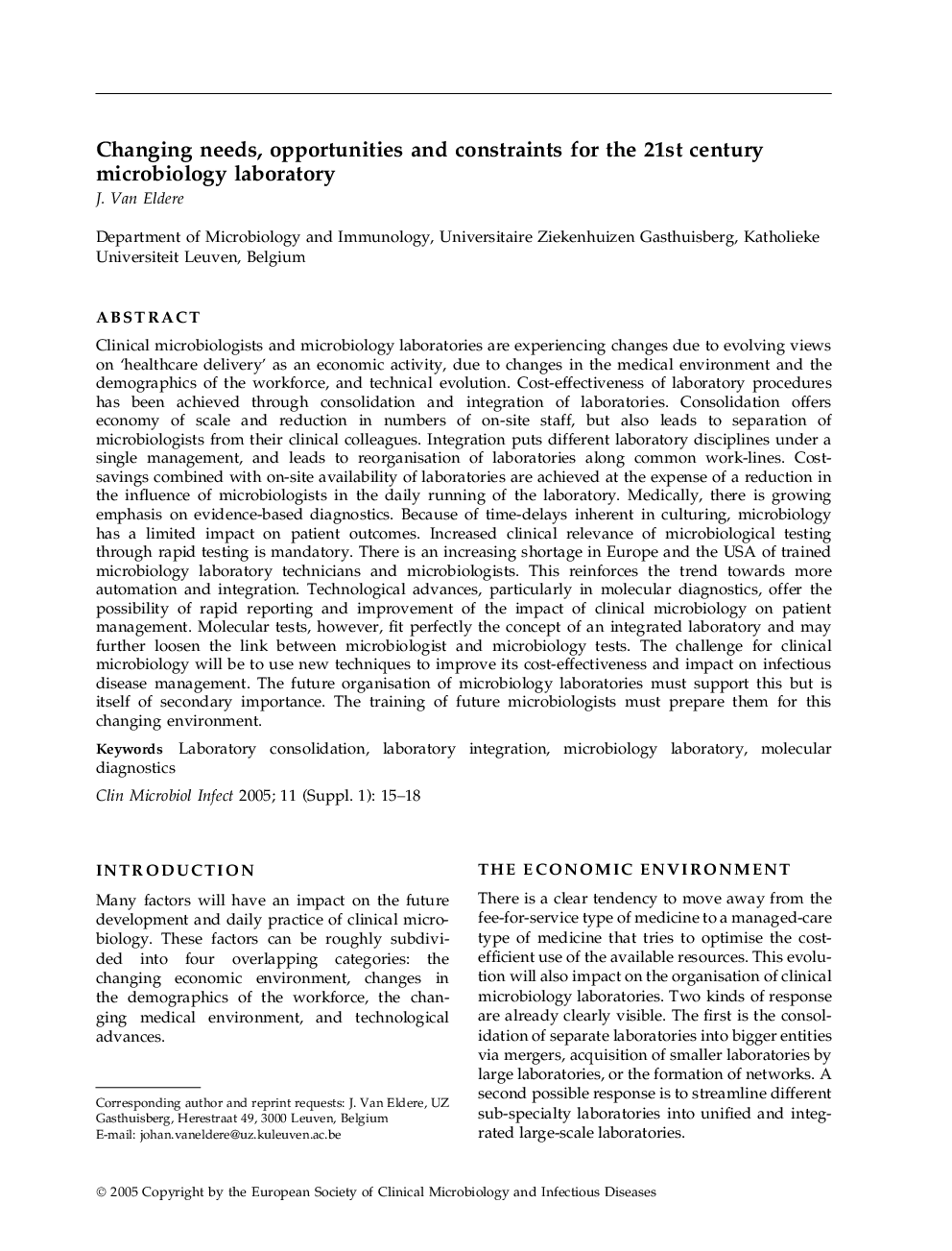| کد مقاله | کد نشریه | سال انتشار | مقاله انگلیسی | نسخه تمام متن |
|---|---|---|---|---|
| 9276070 | 1222384 | 2005 | 4 صفحه PDF | دانلود رایگان |
عنوان انگلیسی مقاله ISI
Changing needs, opportunities and constraints for the 21st century microbiology laboratory
دانلود مقاله + سفارش ترجمه
دانلود مقاله ISI انگلیسی
رایگان برای ایرانیان
موضوعات مرتبط
علوم زیستی و بیوفناوری
ایمنی شناسی و میکروب شناسی
میکروب شناسی
پیش نمایش صفحه اول مقاله

چکیده انگلیسی
Clinical microbiologists and microbiology laboratories are experiencing changes due to evolving views on 'healthcare delivery' as an economic activity, due to changes in the medical environment and the demographics of the workforce, and technical evolution. Cost-effectiveness of laboratory procedures has been achieved through consolidation and integration of laboratories. Consolidation offers economy of scale and reduction in numbers of on-site staff, but also leads to separation of microbiologists from their clinical colleagues. Integration puts different laboratory disciplines under a single management, and leads to reorganisation of laboratories along common work-lines. Cost-savings combined with on-site availability of laboratories are achieved at the expense of a reduction in the influence of microbiologists in the daily running of the laboratory. Medically, there is growing emphasis on evidence-based diagnostics. Because of time-delays inherent in culturing, microbiology has a limited impact on patient outcomes. Increased clinical relevance of microbiological testing through rapid testing is mandatory. There is an increasing shortage in Europe and the USA of trained microbiology laboratory technicians and microbiologists. This reinforces the trend towards more automation and integration. Technological advances, particularly in molecular diagnostics, offer the possibility of rapid reporting and improvement of the impact of clinical microbiology on patient management. Molecular tests, however, fit perfectly the concept of an integrated laboratory and may further loosen the link between microbiologist and microbiology tests. The challenge for clinical microbiology will be to use new techniques to improve its cost-effectiveness and impact on infectious disease management. The future organisation of microbiology laboratories must support this but is itself of secondary importance. The training of future microbiologists must prepare them for this changing environment.
ناشر
Database: Elsevier - ScienceDirect (ساینس دایرکت)
Journal: Clinical Microbiology and Infection - Volume 11, Supplement 1, 2005, Pages 15-18
Journal: Clinical Microbiology and Infection - Volume 11, Supplement 1, 2005, Pages 15-18
نویسندگان
J. Van Eldere,